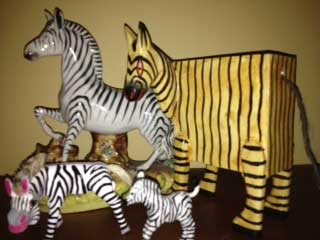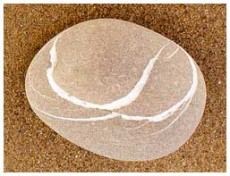How a Zebra Helped Me Get Beyond Black and White Thinking
Don’t be satisfied with stories of how things have gone for others.
Unfold your own myth.
—Thirteenth century Sufi mystic, Rumi.
She gazed into my eyes and said, “Sue, I’m looking at you and I think of zebra.”
 My friend and I sat across from each other having tea that afternoon as her three under-the-age-of five sons ran around our ankles. Karen and I had discussed the shrill “NOs” of the terrible twos and our work to get children to eat like adults. “Zebra?” I asked her. “Where did that come from?”
My friend and I sat across from each other having tea that afternoon as her three under-the-age-of five sons ran around our ankles. Karen and I had discussed the shrill “NOs” of the terrible twos and our work to get children to eat like adults. “Zebra?” I asked her. “Where did that come from?”
Karen said, “In all our talks, no matter what the topic, I tend to perceive things as black or white. You always help me see right through those stripes to the whole.”
I felt a “yes” in me. I admitted that I do help her in that way. But “zebra” didn’t land in me wholeheartedly until I received Karen’s surprise the next day. When I walked into my house after grocery shopping, a little toy plastic zebra sat on my wooden kitchen table. Around its black and white neck hung a tiny tag with “factoids about the Zebra,” its Latin name and other details. At the end, I read, “Although zebras closely resemble the horse, all attempts to domesticate the zebra have failed.”
With a fist pump and another big “Yes,” I called Karen to tell her how her Sue-as-zebra mirror reflected to me some new understandings about my restlessness, my rebellion, my not wanting to get dressed up: “Yes, teacher, that’s true: I can’t sit still. When is recess?” “But Dad, I want to play Little League with the boys.” “No, Mom, I won’t wear white gloves at my wedding.”
Here is what I now know about zebras:
- They graze and eat green grasses. No wonder I have never been able to domesticate myself into three square meals a day.
- They roam, possibly explaining my need for wide open spaces.
- They have strong legs and a sturdy body, so I could drop my life-long plea, “please change me into a long sleek antelope or gazelle.” With zebra, I could say yes to my short powerful frame.
- Zebras can be mean, I read. I’ll have to keep an eye on any tendency toward meanness.
SEEING OUR WHOLENESS
My little zebra helped me resolve to see who I am, as fully as I can; gifts and pitfalls, both the redeemed and unredeemed parts in me, loving my inner nature even as I take care not to let zebra energy get too wild.
Zebra or not, maybe we could all be as known, as rich and as simple as Nasrudin, the wise fool of Sufi tales, who went to the bank one day to cash a check. The teller asked him to identify himself. He whipped a mirror out of his pocket, looked at himself, and said, “Yep, that’s me all right.”
ACCEPTING OURSELVES FULLY
What if we saw in the mirror our strengths, our capacities, our abilities, weaknesses, vulnerabilities, soft spots, and where we are indeed like children? Your story might not include non-domestication of toddlers or of your own adult animal body. Your story may not include topics like you or your kids eating or not eating green vegetables. But if you unfold your own myth, you will see how things have gone for you.
DEEP SEEING
Maybe such deep clear seeing of our whole selves could serve as blessings when we, like Nasrudin with a satisfied smile could look in a mirror and say, “Yep, that’s me all right.”


